Turkeyberry (Solanum torvum), also known as pea eggplant, prickly nightshade, or wild eggplant, is a small, green, and prickly fruit native to tropical regions. It is commonly used in traditional medicine and culinary practices in many parts of the world, particularly in Africa, Asia, and the Caribbean. Turkeyberry is packed with nutrients, antioxidants, and bioactive compounds that contribute to its numerous health benefits.
1. Rich in Nutrients
Vitamins and Minerals: Turkeyberry is a good source of essential vitamins and minerals like Vitamin C, Vitamin A, potassium, calcium, and iron. These nutrients contribute to overall health and wellness.
Antioxidants: It contains antioxidants like flavonoids and phenolic compounds that help neutralize free radicals in the body, reducing oxidative stress and protecting cells from damage.
2. Supports Immune Health
Boosts immunity: The high Vitamin C content in turkeyberry helps strengthen the immune system, promoting faster recovery from infections and boosting the body’s natural defense mechanisms.
Antibacterial and Antifungal Properties: Turkeyberry has natural antibacterial and antifungal properties, which can help protect the body from harmful microbes.
3. Aids in Digestive Health
Improves digestion: Turkeyberry contains dietary fiber, which aids in digestion, helps regulate bowel movements, and prevents constipation.
Relieves bloating and indigestion: Consuming turkeyberry can help alleviate bloating and discomfort caused by indigestion due to its natural digestive properties.
4. Supports Heart Health
Lowers cholesterol: The fiber and antioxidant content in turkeyberry can help reduce the levels of bad cholesterol (LDL) in the blood, promoting better heart health.
Regulates blood pressure: The potassium in turkeyberry helps maintain proper fluid balance in the body and supports healthy blood pressure levels.
5. Anti-inflammatory Effects
Reduces inflammation: Turkeyberry has been traditionally used to treat inflammation-related conditions. Its anti-inflammatory compounds help soothe swelling and discomfort caused by inflammatory diseases such as arthritis.
Pain relief: It may also help reduce pain and joint stiffness, particularly for those with conditions like rheumatoid arthritis.
6. Anticancer Potential
Contains bioactive compounds: Turkeyberry is believed to contain compounds that may have anticancer properties. Some studies suggest that the antioxidants and phytochemicals in turkeyberry may inhibit the growth of cancer cells and reduce the risk of certain cancers.
Inhibits tumor growth: Preliminary research indicates that the compounds in turkeyberry may help reduce the growth of tumors, though more research is needed.
7. Improves Liver Health
Detoxifies the liver: Turkeyberry is thought to have liver-protective properties. It helps detoxify the liver by promoting the elimination of harmful toxins from the body.
Supports liver function: Regular consumption may help support overall liver health and reduce the risk of liver-related diseases.
8. Helps Control Blood Sugar
Regulates blood sugar levels: Turkeyberry may help regulate blood sugar levels, making it beneficial for individuals with diabetes or those at risk of developing diabetes.
Improves insulin sensitivity: Some studies suggest that turkeyberry may help improve the body’s sensitivity to insulin, aiding in better blood sugar control.
9. Skin Health
Promotes healthy skin: The antioxidants in turkeyberry help protect the skin from free radical damage, preventing premature aging and promoting a healthy, glowing complexion.
Reduces acne: Turkeyberry’s antibacterial properties may help prevent acne and other skin conditions by combating bacteria that contribute to skin infections.
10. Supports Eye Health
Rich in Vitamin A: Turkeyberry contains Vitamin A, which is essential for maintaining good vision and preventing night blindness.
Prevents eye diseases: The antioxidants in turkeyberry also help protect the eyes from oxidative stress, which may reduce the risk of cataracts and age-related macular degeneration (AMD).
11. Anti-obesity Effects
Supports weight loss: The fiber content in turkeyberry can promote feelings of fullness and reduce overall calorie intake, which may aid in weight management and obesity prevention.
Promotes fat metabolism: Some studies suggest that turkeyberry may help improve fat metabolism, further supporting weight management efforts.
12. Treats Fever and Infections
Antipyretic properties: In traditional medicine, turkeyberry has been used to treat fever due to its ability to help lower body temperature.
Fights infections: Its antibacterial and antifungal properties make it useful for treating various infections, including urinary tract infections (UTIs) and fungal infections.
How to Use Turkeyberry
Raw: Turkeyberry can be eaten raw, although it is often too bitter to consume without preparation.
Cooked: In many cuisines, turkeyberries are cooked in stews, curries, or stir-fries to reduce their bitterness.
Herbal Medicine: Turkeyberry is often used in traditional herbal remedies in the form of teas, tinctures, or powders for treating various ailments like inflammation, infections, and digestive issues.
Juice: Turkeyberry juice can be consumed for its hydrating and health benefits, particularly for immune support and detoxification.















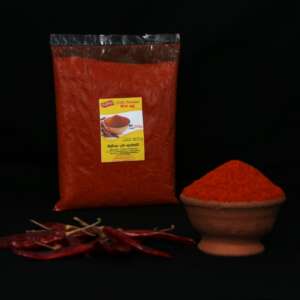
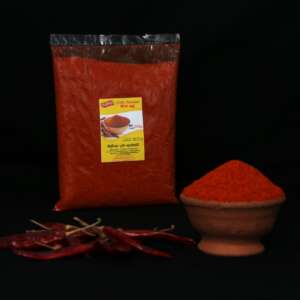
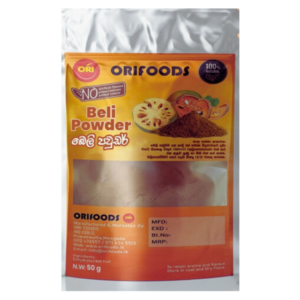







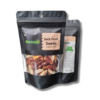
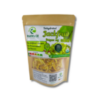
Reviews
There are no reviews yet.